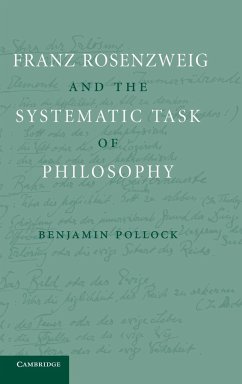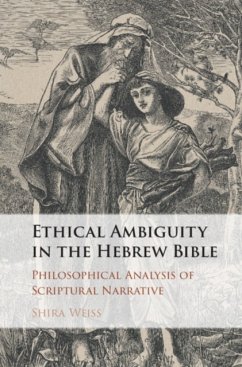
The Philosophy of Hebrew Scripture
Versandkostenfrei!
Versandfertig in 1-2 Wochen
40,99 €
inkl. MwSt.
Weitere Ausgaben:

PAYBACK Punkte
20 °P sammeln!
What if the Bible wasn't meant to be read as 'revelation'? The Philosophy of Hebrew Scripture proposes a new framework for reading the Bible, transforming forever our understanding of what the stories of Abraham, Jacob, Joseph, Moses and David and the speeches of Isaiah and Jeremiah, were meant to teach.














